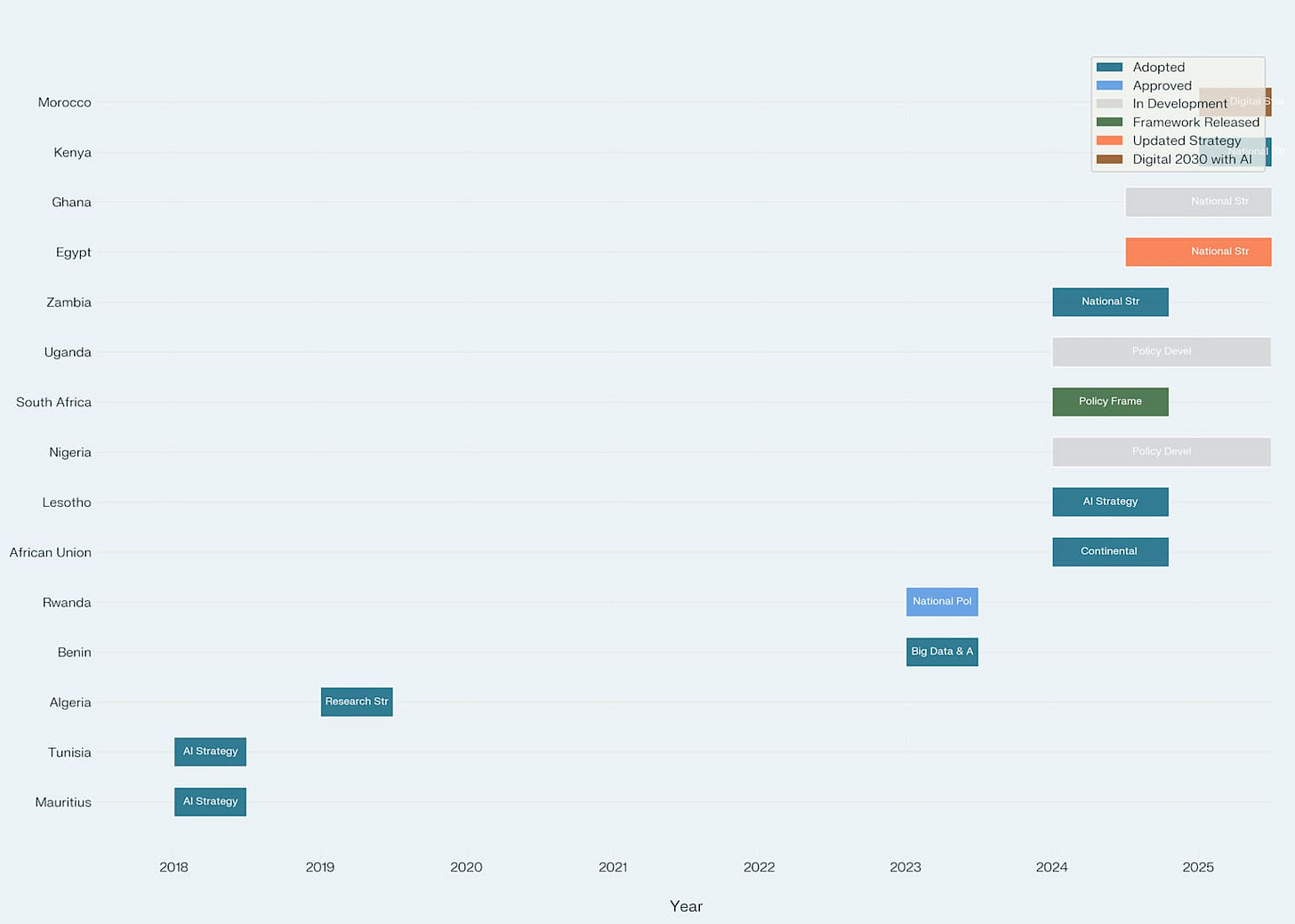Africa’s AI Governance Accelerates
Policy Spotlight
Summary
AI policy in Africa is entering a new phase. From the African Union’s continental framework to national strategies in Kenya, Egypt and South Africa, African leaders are shifting from aspiration to action, centering data sovereignty, economic growth and digital inclusion.
continental momentum takes shape
In July 2024, the African Union adopted its Continental AI Strategy—the clearest signal yet that Africa is building a shared vision for artificial intelligence. The strategy emphasizes:
Data sovereignty: Ensuring African data stays within African borders
Regional alignment: Avoiding fragmentation by harmonizing standards
Cross-border collaboration: Enabling AI systems that work continent-wide
This strategy builds on the Malabo Convention, which came into force in June 2023 and laid the legal groundwork for data protection.
In May 2025, a High-Level Dialogue in Addis Ababa convened 40+ nations to align priorities. Ethiopia’s Prime Minister called AI the engine of transformation - a signal that policy is being matched by political capital.
national strategies multiply
African countries are not waiting on the AU to act
Kenya launched its 2025–2030 AI Strategy with three pillars: infrastructure, data governance and research commercialization. Nairobi aims to become Africa’s AI hub.
Egypt updated its strategy with targets to train 30,000 AI professionals and grow ICT’s GDP contribution to 7.7% by 2030.
South Africa’s 2024 framework emphasizes fairness and transparency through 12 strategic pillars rooted in inequality reduction.
Morocco integrated AI into its Digital 2030 strategy, launching AI youth programs and a pan-Arab-African hub with UNDP.

Common threads include national strategies center responsible AI, youth training and institutional leadership, often through new AI agencies or directorates.
global policies reshape African options
Africa’s AI landscape is also shaped by external forces
The EU AI Act creates compliance demands for African firms that serve European clients.
The UN AI Resolution (March 2024) aligns AI with the Sustainable Development Goals, reinforcing Africa’s AI-for-development agenda.
These frameworks raise standards but also risks. African companies must now navigate complex rules with limited compliance resources.
from declarations to delivery
In April 2025, 52 countries signed the Africa Declaration on AI, committing to
Open African AI datasets and models
Responsible procurement (Africa-first)
Creation of a $60B Africa AI Fund
But practical challenges remain
Only 31 countries have laws covering AI-powered decision making
Infrastructure, talent and enforcement capacity are still major gaps
No African country has passed dedicated AI legislation
what’s next
As 2025 unfolds, watch for
Implementation: Can strategies move from paper to practice?
Integration: Will the African Continental Free Trade Area (AfCFTA) help harmonize AI markets?
Influence: How will Africa shape global AI governance forums?
The continent is not just reacting, it’s starting to lead. Africa’s AI policies are becoming more tailored to local realities and ambitions. If execution keeps pace with ambition, the next decade could see Africa define new global norms in responsible AI.



